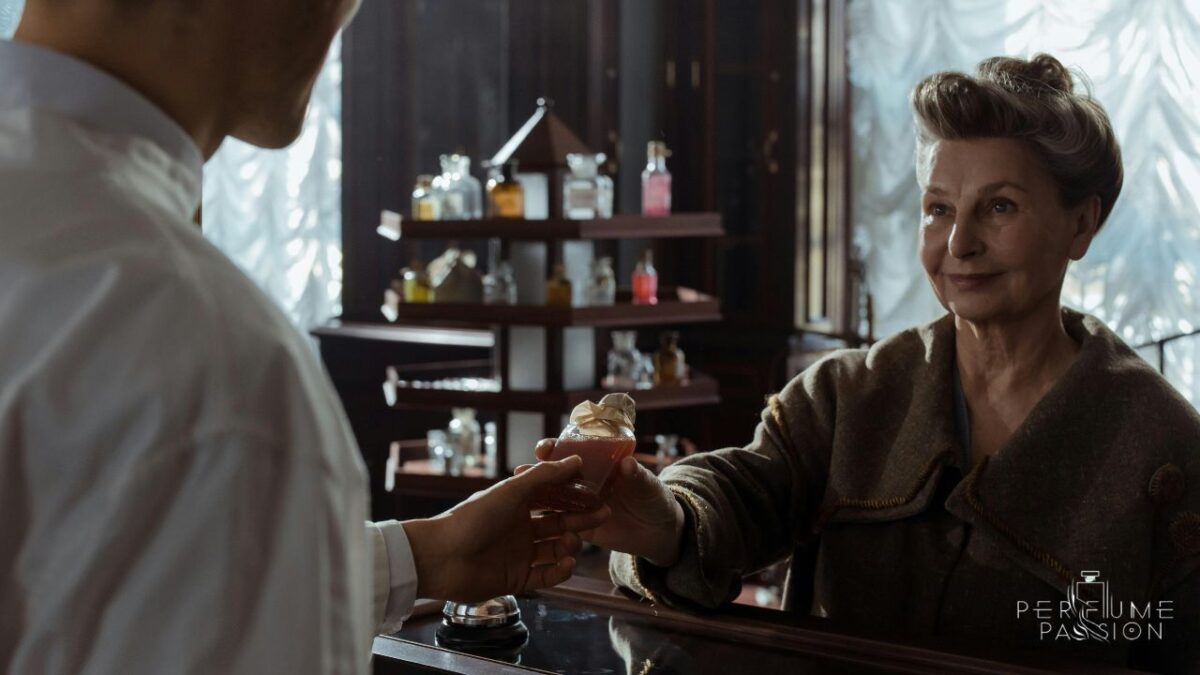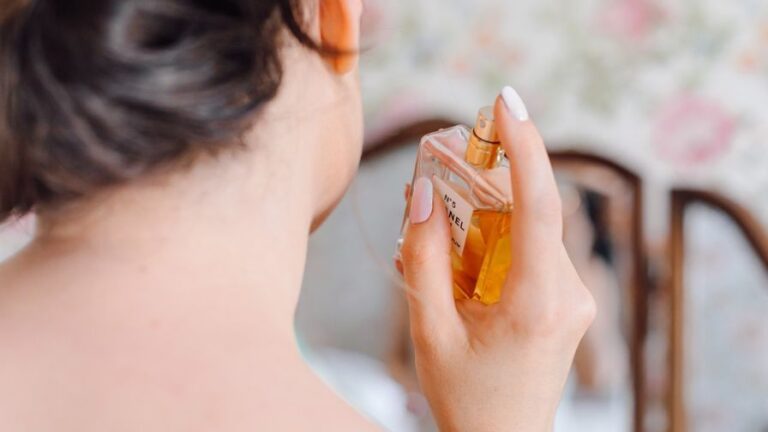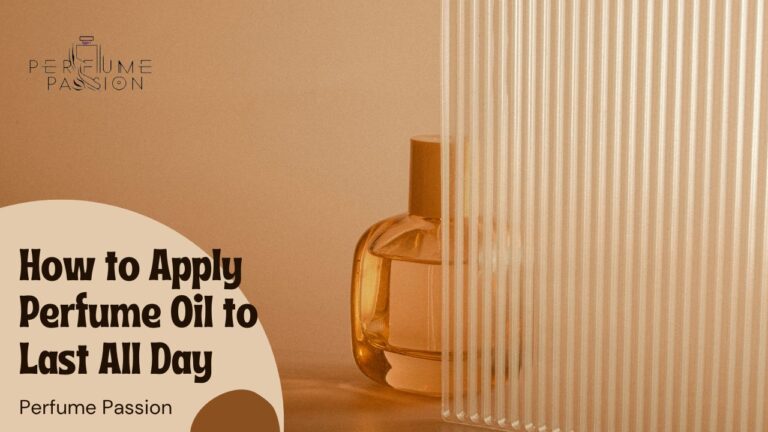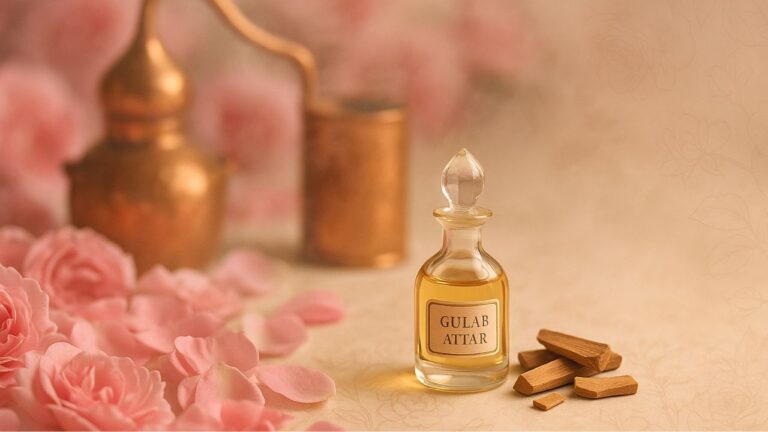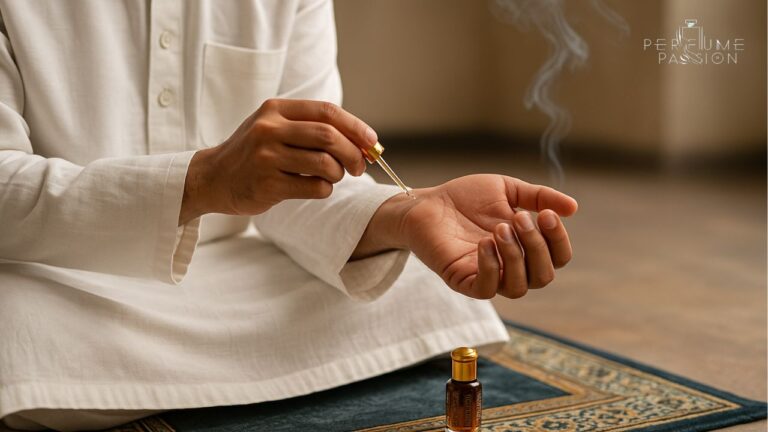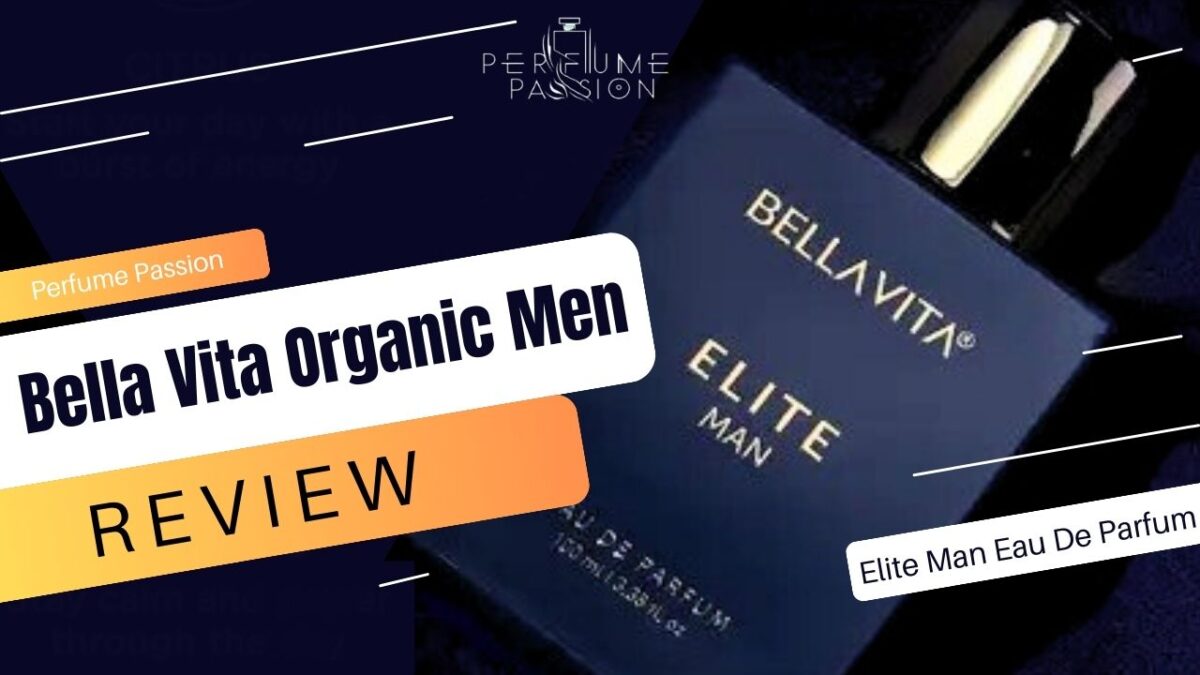Have you ever imagined turning your passion for scents into a full-blown business? Whether you’re drawn to rich woody aromas, soft florals, exotic spices, or dreaming up your own signature blend, you’re tapping into a powerful and growing market. Today, more than ever, starting a fragrance brand isn’t just reserved for big luxury houses. Independent creators and scent enthusiasts are stepping up and claiming their space in the industry.
How to start a perfume business may seem like a mystery at first, but trust me—it’s doable with the right knowledge and a clear roadmap. After years of exploring the fragrance world, learning from skilled perfumers, working with white-label manufacturers, and analyzing how boutique brands thrive, I’ve uncovered what it truly takes to bring a scent to life and build a business that lasts.
Table of Contents
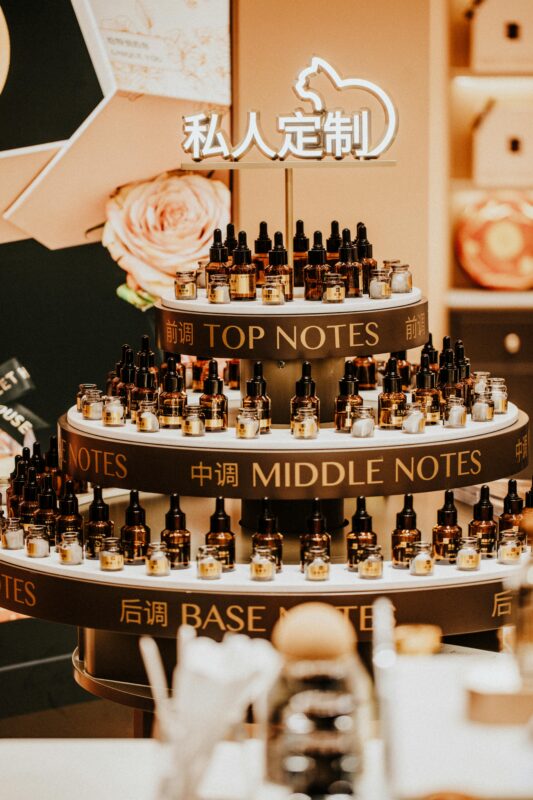
Why Start a Perfume Business Now?
The perfume industry is experiencing a powerful transformation, and it’s not slowing down anytime soon. Forecasts show that the global market is on track to blow past $70 billion by 2030. What’s behind this boom? Consumers are increasingly searching for something more personal—whether that’s a handcrafted scent, a clean vegan formula, an Ayurvedic-inspired blend, or a made-to-order fragrance that feels like their own signature.
India, in particular, is playing a fascinating dual role in this shift. With centuries of tradition in making attars and extracting essential oils, the country is now stepping confidently into the spotlight—not just as a producer, but also as a major consumer of perfumes. The blend of heritage and innovation here is sparking a wave of fresh, exciting brands that are changing the game.
If you’re serious about exploring how to start a perfume business, this is one of the best times to do it. The global appetite for unique, meaningful fragrances is only growing, and there’s plenty of room for new voices, new stories, and new scents to make their mark.
Step 1: Define Your Brand & Vision
Before even touching a fragrance bottle, define your brand’s:
- Positioning: Are you a luxury label, a clean beauty brand, or a mass-market scent for Gen Z?
- Target audience: Male, female, unisex? Age range? Urban or traditional?
- Brand story: Fragrance is emotional. Your story should tap into that emotion.
For example, if your inspiration is Ayurvedic healing, your branding must reflect nature, authenticity, and mindfulness. If you want to launch a party perfume for millennials, you’ll need bold visuals and modern notes like leather, vanilla, or synthetic musks.
Pro Tip: Spend real time on this step. It guides your scent choices, packaging, marketing, and pricing.
Step 2: Learn the Basics of Perfumery (Even If You’re Not a Chemist)
You don’t need to be a master perfumer, but understanding how perfumes are built will help you speak the language of scent:
- Top Notes: The first impression—fresh, citrusy, or green
- Heart Notes: The soul of the perfume—florals, spices, fruits
- Base Notes: The lingering memory—woods, musks, resins
Also familiarize yourself with scent families (floral, woody, oriental, fougère, fresh, etc.). This helps you better brief your fragrance partner or create blends if you’re DIY-ing.

Also Read | Top 10 Private Label Perfume Manufacturers in India: The Ultimate Guide for New Brands
Step 3: Choose a Perfume Creation Method
1. Private Label Perfume Manufacturing
This is the most popular route for startups. You collaborate with a manufacturer who handles:
- Formulation
- Bottling
- Labeling
- Packaging
All under your brand.
This is ideal if you want a professional, scalable perfume business with relatively low investment.
2. Create Your Own Blends
Buy essential oils, alcohol (like denatured ethanol), and blending materials to make your own perfume. You’ll need:
- Fragrance oils or aroma molecules
- Perfumer’s alcohol (95% ethanol)
- Fixatives (glycerin, DPG, or botanical resins)
- Beakers, droppers, and bottles
This is time-consuming and requires testing but gives you creative control.

Step 4: Find the Right Manufacturer or Lab Partner
If you’re not formulating yourself, find a reliable private label perfume manufacturer in India.
What to Look For:
- Custom fragrance creation
- Low minimum order quantities (MOQs)
- Regulatory compliance (IFRA, ISO, etc.)
- Transparent pricing
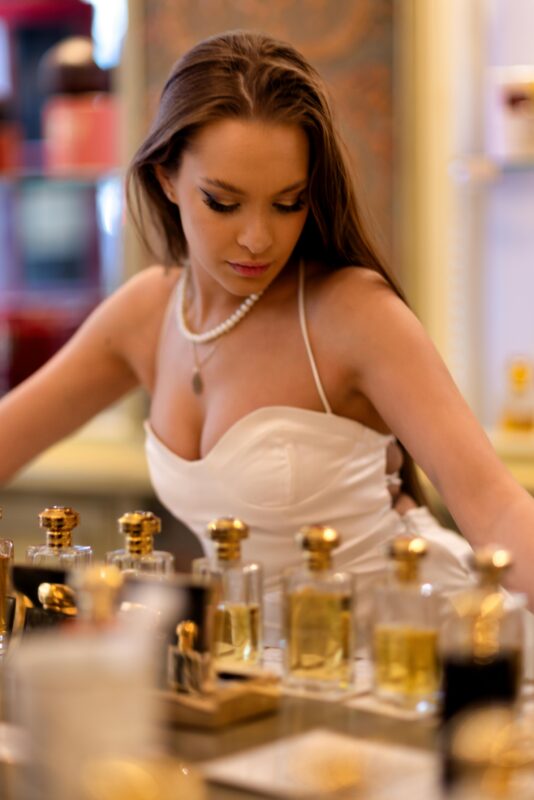
Top Indian Manufacturers to Explore:
- Ajmal Perfumes
- Vimal Agro Products
- FFDC Kannauj
- Neuchatel Chemie
- Keva Fragrances
Ensure they allow you to create a unique formula, not just white-label their stock scents.
Step 5: Packaging and Bottle Design
Packaging can make or break your perfume brand. It’s the first thing your customer sees—and often why they buy.
Elements to Consider:
- Bottle shape: Custom glass molds vs. stock designs
- Cap material: Plastic, wood, metal
- Label type: Screen printing vs. adhesive
- Outer box: Minimalist vs. luxury unboxing experience
Work with a designer who understands cosmetic branding.
Also, get your packaging leak-tested and temperature-tested if you’re shipping across states or globally.
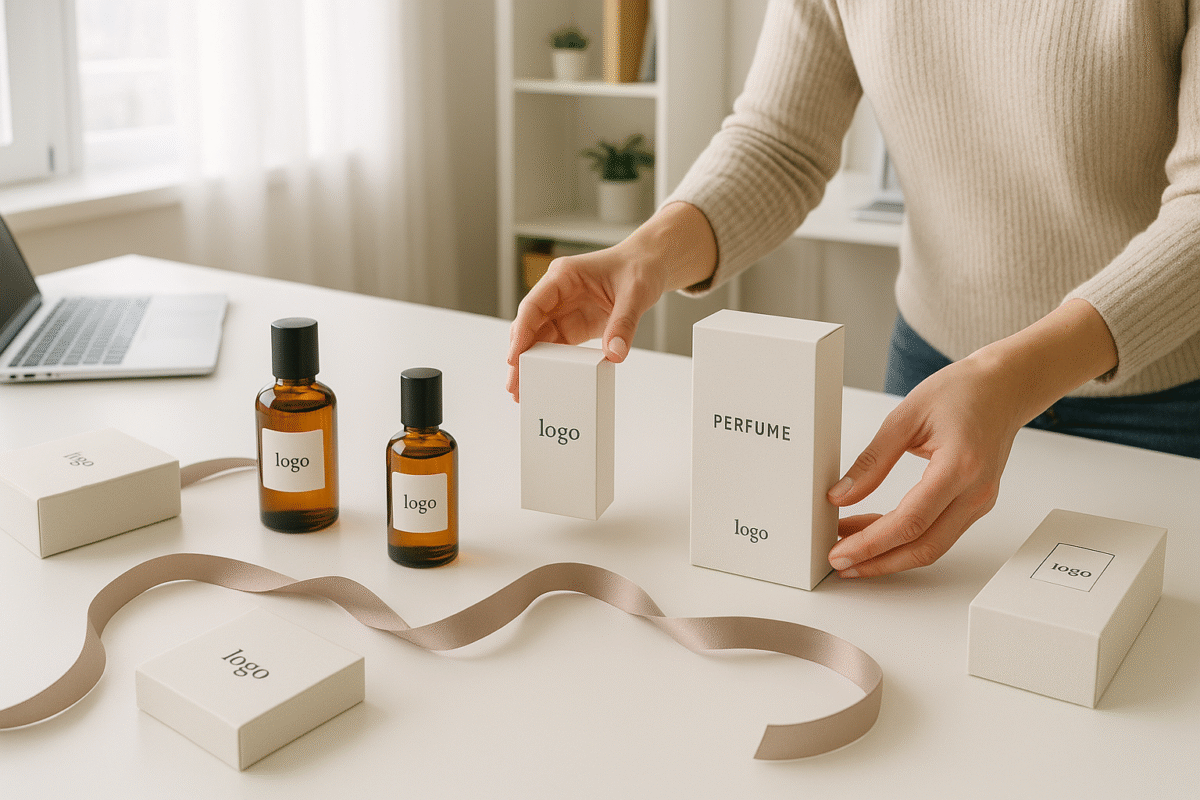
Step 6: Set Your Budget and Pricing Strategy
A typical breakdown for private label perfume creation might look like this (per 50ml unit):
| Component | Estimated Cost (INR) |
| Fragrance + Base | ₹40–₹100 |
| Bottle + Packaging | ₹30–₹120 |
| Labor + Filling | ₹15–₹25 |
| Branding + Labeling | ₹10–₹50 |
| Total Manufacturing | ₹100–₹300 |
| Suggested Retail Price | ₹499–₹1499 |
Add margins for resellers, online marketplaces (Amazon, Nykaa), or offline retail partners if applicable.
Step 7: Legal Requirements & Business Setup
Starting a perfume business in India requires a few licenses:
- Company Registration (sole proprietorship, LLP, or Pvt. Ltd.)
- GST Registration
- BIS/Labeling Compliance (especially if exporting)
- MSME/Udyam Registration (optional but helpful)
If your perfumes contain alcohol, you may also need special permissions for transport and manufacturing.

Also Read | 5 Secrets Behind the Smell of First Rain Perfume That Captures Petrichor Perfectly
Step 8: Choose Your Sales Channels
Your success depends as much on distribution as it does on your fragrance.
Online Sales:
- Create your own Shopify or WooCommerce store
- List on marketplaces (Amazon, Flipkart, Nykaa)
- Promote through Instagram, YouTube influencers, and WhatsApp marketing
Offline Sales:
- Boutique retail stores
- Salons & spas
- Pop-up events and flea markets
- Luxury gifting partnerships (especially during Diwali or weddings)
Step 9: Branding, Marketing & Launch Strategy
Launching a perfume business is about much more than just having a great scent—it’s about crafting an identity that people connect with. In today’s saturated market, how to start a perfume business the right way means focusing heavily on branding and storytelling. Your fragrance should tell a story—of emotion, memory, culture, or luxury—and your brand must bring that story to life at every touchpoint.
Customers don’t just buy perfume; they buy how it makes them feel. Your packaging, logo, name, and messaging should all evoke a clear mood or lifestyle. Whether it’s minimalist sophistication or exotic adventure, your brand must deliver a consistent experience that captures the imagination. From the scent itself to the unboxing moment, each detail should align with your brand’s identity.
Marketing is where your story meets your audience. Build anticipation through social media, behind-the-scenes content, influencer collaborations, and pre-launch teasers. Focus on visual storytelling—videos, mood boards, and lifestyle imagery that reflect the essence of your perfume. And when it comes time to launch, think beyond the digital: pop-up experiences, intimate launch parties, or curated scent samplers can all create buzz and loyalty.
If you want to truly succeed in this space, learning how to start a perfume business includes mastering the art of emotional branding. It’s this connection—this feeling—that turns one-time buyers into lifelong customers.
Marketing Tips:
- Tell the story behind each fragrance
- Use visuals that reflect your scent identity (color, texture, emotion)
- Collaborate with lifestyle influencers and reviewers
- Offer discovery kits with small-size testers
- Invest in perfume photography and 3D renders

Step 10: Scale, Reinvest & Innovate
Once your perfume business starts selling, pay attention to:
- Best-selling scents and seasonal trends
- Customer reviews and repurchase behavior
- Reordering timelines and inventory planning
- Introducing new scent variants (e.g., summer vs. winter)
- Creating add-ons (body mists, candles, pocket perfumes)
You can also license your scent or offer corporate/bulk gifting for additional revenue.
Final Thoughts from a Perfume Insider
Starting a perfume business is one of the most creatively rewarding and commercially scalable ventures today—especially in a country like India where fragrance is both spiritual and cultural.
But success isn’t just about a good-smelling product. It’s about brand emotion, product quality, packaging appeal, and how well you tell your story. As someone who’s worked with niche and mass fragrance brands alike, I can tell you: the market is ready if you are. If you’re serious about building your brand, do your homework, invest in quality, and don’t rush. A signature scent isn’t made in a day—but it can leave a memory that lasts a lifetime
Frequently Asked Questions (FAQs)
1. Is it expensive to start a perfume business?
Not necessarily. You can start with ₹50,000–₹2,00,000 depending on batch size, branding, and packaging.
2. Can I start a perfume business from home?
Yes, if you follow basic safety guidelines and use non-alcoholic bases (like oils or water mists). For alcohol-based perfumes, legal compliance is stricter.
3. Do I need a cosmetic license to sell perfumes in India?
Perfumes fall under the Drugs & Cosmetics Act but often don’t need a cosmetic license unless manufacturing in-house. Check with your local authority or private label partner.
4. How can I market perfumes on Instagram?
Focus on visuals, storytelling, and influencer marketing. Use reels, scent-based storytelling, aesthetic packaging, and hashtags like #MadeInIndiaPerfume or #UnisexFragrance.
5. What are the best selling types of perfumes in India?
Popular categories include:
1) Long-lasting deodorant perfumes
2) Natural & Ayurvedic blends
3) Unisex urban scents
4) Wedding & festive gift sets
Citations and Sources
To ensure factual accuracy and updated insights, the following credible sources were referred to during the research for this article:
- Statista – Global Fragrance Market Forecast (2023–2030)
https://www.statista.com/statistics/259221/global-fragrance-market-size/
– For market trends, growth projections, and consumer demand. - Fragrance and Flavour Development Centre (FFDC), Kannauj – Ministry of MSME
https://www.ffdcindia.org
– For information on traditional Indian attar production and MSME fragrance support. - Ajmal Perfumes India – Private Label Services
https://www.ajmalperfume.com/in/
– For understanding manufacturing models and brand collaboration opportunities. - Business Setup & Legal Guidance – IndiaFilings
https://www.indiafilings.com/
– For business registration, GST compliance, and MSME-related licenses in India. - Neuchatel Chemie Specialities Pvt. Ltd. – Fragrance Solutions
https://www.neuchatelchemie.com
– Source for natural and clean-label fragrance development processes. - Keva Fragrances (S. H. Kelkar Group)
https://www.keva.co.in
– For large-scale fragrance manufacturing capabilities and insights on product development. - Perfumer’s Apprentice – Introduction to Perfumery Notes and Families
https://shop.perfumersapprentice.com
– Used as a technical reference for top, middle, and base note explanations. - Startup India – Cosmetic and Fragrance Business Guide
https://www.startupindia.gov.in
– For entrepreneurship support and eligibility for perfume startups under government schemes.
Siman Ray is a seasoned journalist with years of experience in the news media industry. Now serving as the Editor at Perfume Passion, he brings his investigative eye and passion for storytelling to the world of fragrances. A dedicated perfume enthusiast, Siman has conducted in-depth research on Indian perfumes, attars, and the rich history of perfumery. His writing blends expertise with curiosity, making complex scent stories accessible and engaging for all fragrance lovers.

